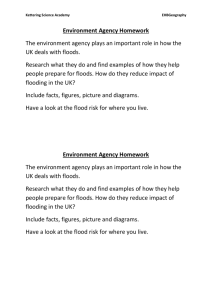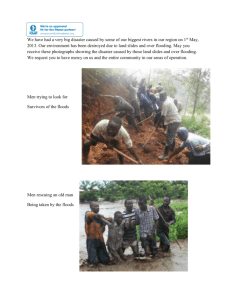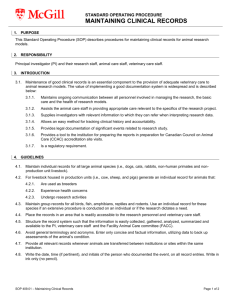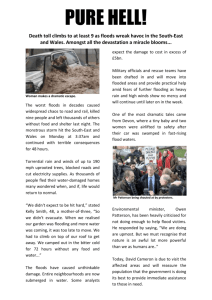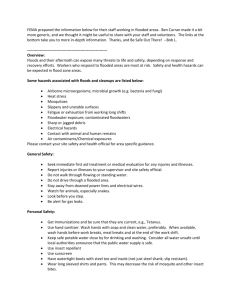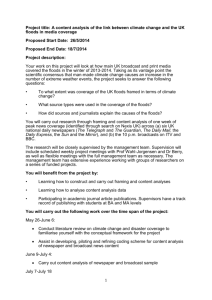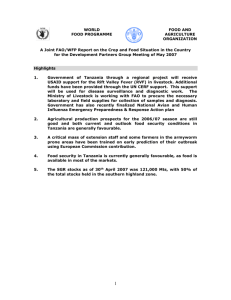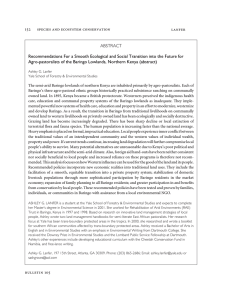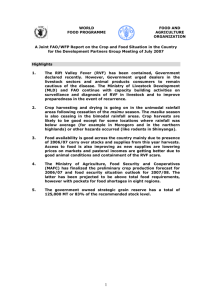Press Release - University of Nairobi
advertisement
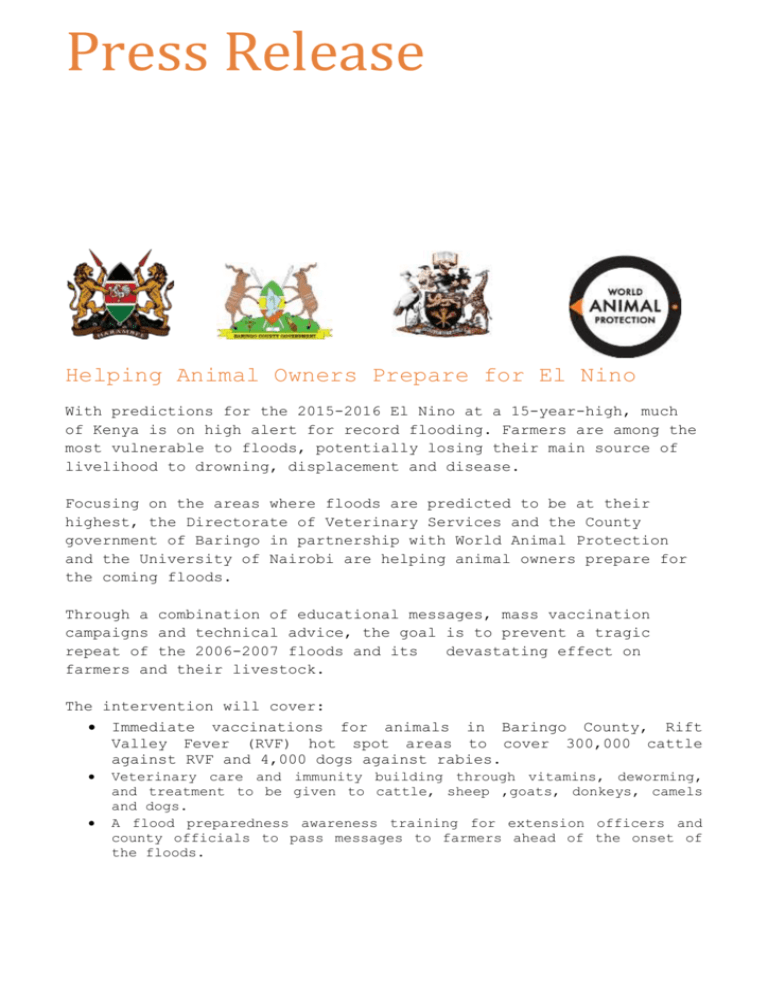
Press Release Helping Animal Owners Prepare for El Nino With predictions for the 2015-2016 El Nino at a 15-year-high, much of Kenya is on high alert for record flooding. Farmers are among the most vulnerable to floods, potentially losing their main source of livelihood to drowning, displacement and disease. Focusing on the areas where floods are predicted to be at their highest, the Directorate of Veterinary Services and the County government of Baringo in partnership with World Animal Protection and the University of Nairobi are helping animal owners prepare for the coming floods. Through a combination of educational messages, mass vaccination campaigns and technical advice, the goal is to prevent a tragic repeat of the 2006-2007 floods and its devastating effect on farmers and their livestock. The intervention will cover: Immediate vaccinations for animals in Baringo County, Rift Valley Fever (RVF) hot spot areas to cover 300,000 cattle against RVF and 4,000 dogs against rabies. Veterinary care and immunity building through vitamins, deworming, and treatment to be given to cattle, sheep ,goats, donkeys, camels and dogs. A flood preparedness awareness training for extension officers and county officials to pass messages to farmers ahead of the onset of the floods. Press Release Sharing preparedness and survival tips through radio and television campaigns Along with preparing animals and their owners against flooding, prevention of a deadly Rift Valley Fever (RVF) outbreak is a top priority. Affecting both humans and animals, RVF often ravages communities during floods leaving death and economic ruin in its wake. Following the El Nino of 2006/07, the International Livestock Research Institute and the Government of Kenya’s, Department of Veterinary Services identified the Rift Valley Fever outbreak as the major disease that affected the disaster stricken communities in Kenya. Together with drownings and starvation, the outbreak claimed more than 4 billion shillings in livestock sector. Judy Kimaru, World Animal Protection’s Disaster Operations Manager for Africa says: “By taking action now, we can avoid a repeat of the disaster of 2006-2007. The floods this year are predicted to be even worse than they were eight years ago, but building on lessons we’ve all learned and recognising the vital role played by livestock in the health and wellbeing of local communities, we aim to prevent this from happening again. It is better economically as we know that every dollar spent in prevention saves an average of seven dollars in recovery1. It is also better from a public health point of view and from an ethical, humane standpoint.” ENDS Press Release Note to editors Contacts Dr. Kisa Ngeiywa Director of Veterinary Services E: Kisajuma@yahoo.com T: +254 (0) 20 8043441 M: +254 (0) 722376237 H.E Hon Benjamin Cheboi Governor Baringo County E: governor@baringo.go.ke T: +254 (0) 5321077 M: +254 (0) 722720132 Tennyson Williams World Animal Protection – Africa Director E: TennysonWilliams@worldanimalprotection.org T: +254 (0) 20 72176598 M: +254 (0) 734564106 Prof. Charles Mulei University of Nairobi Dean Faculty of Veterinary Medicine E: dean_vet@uonbi.ac.ke T: +254 (0) 20 91967 M: +254 (0) 734564106 An accompanying fact sheet of preparedness advice to farmers is available Audio and visual public educational materials are available at: <insert url>
